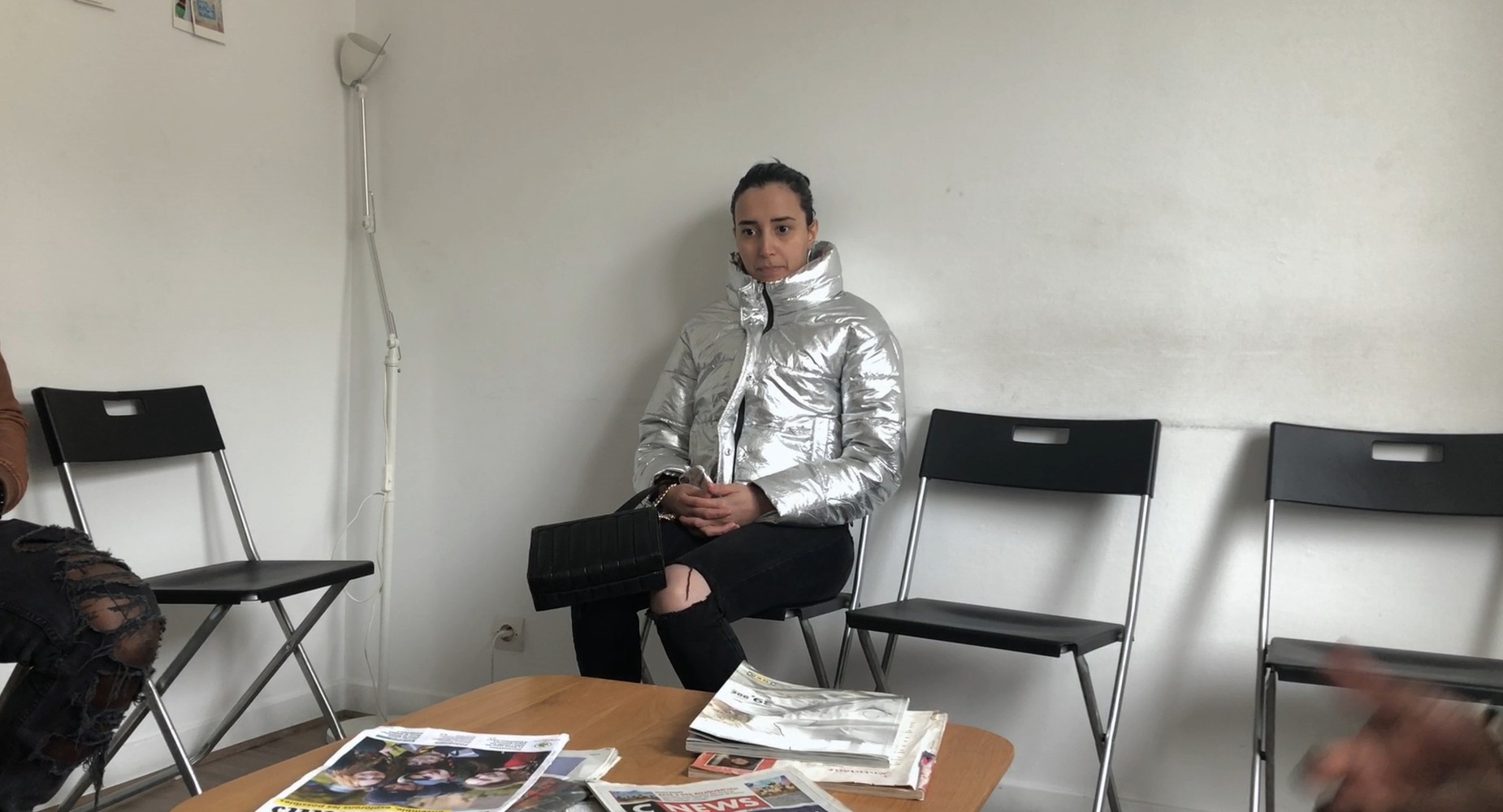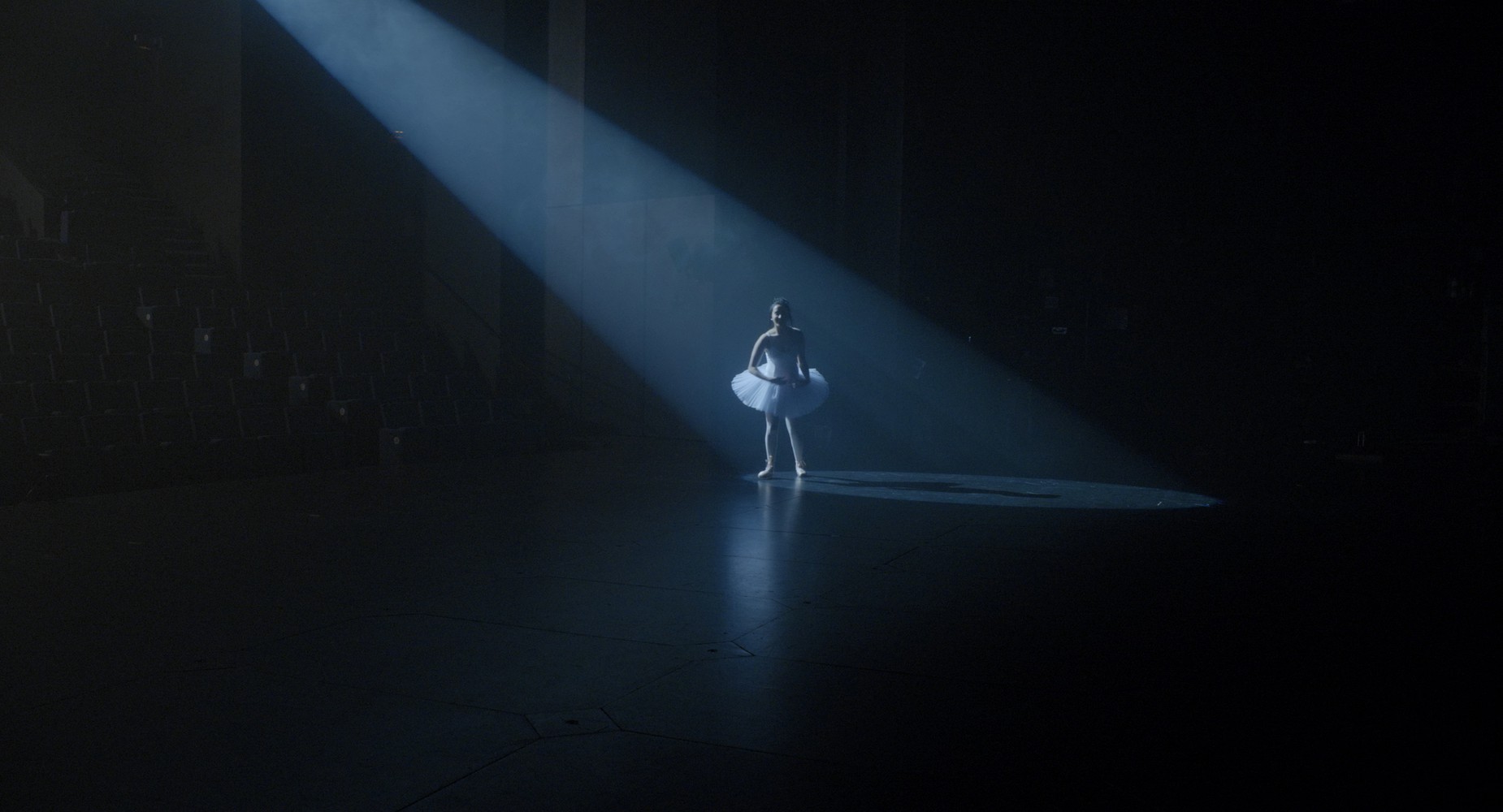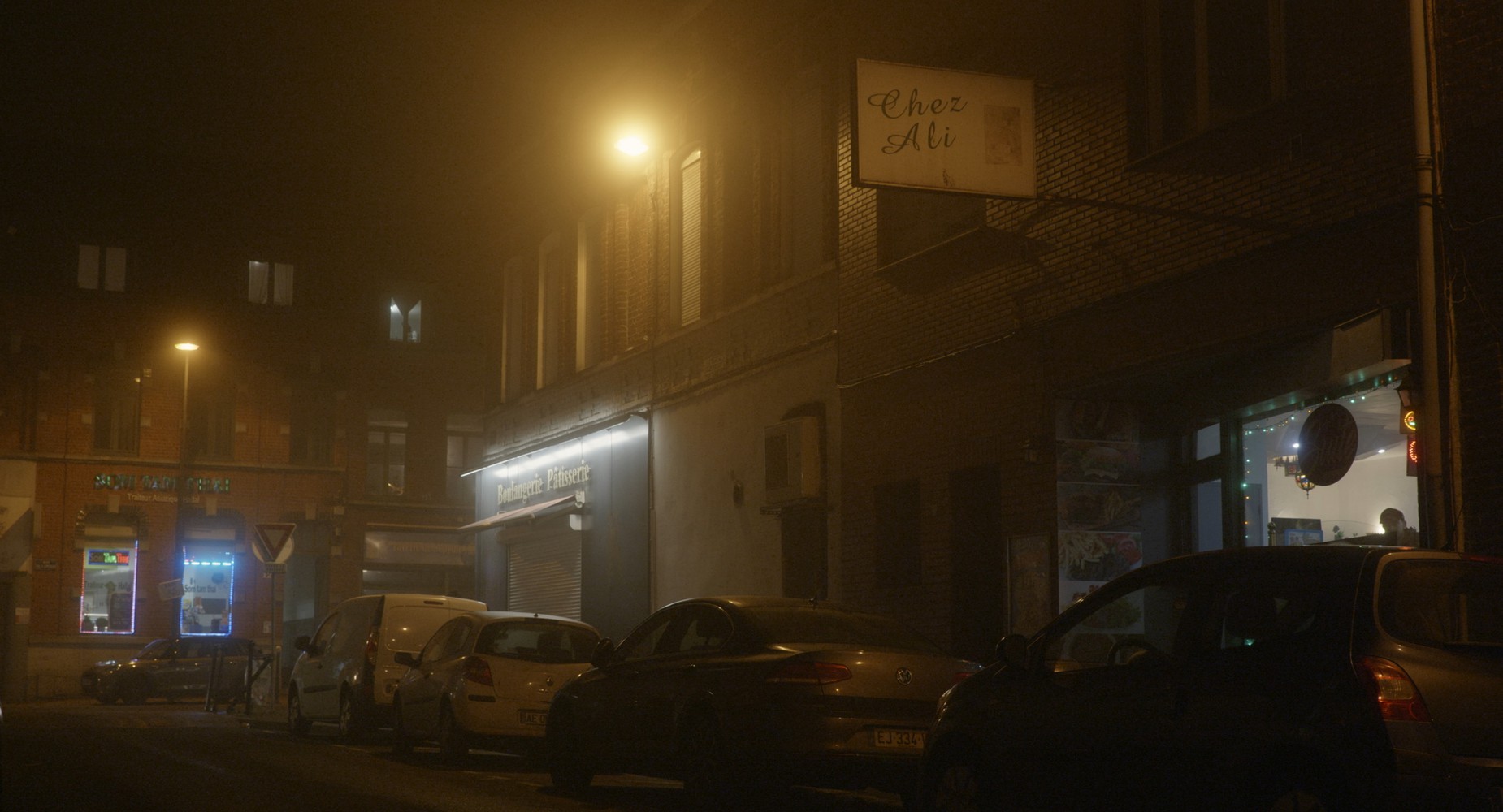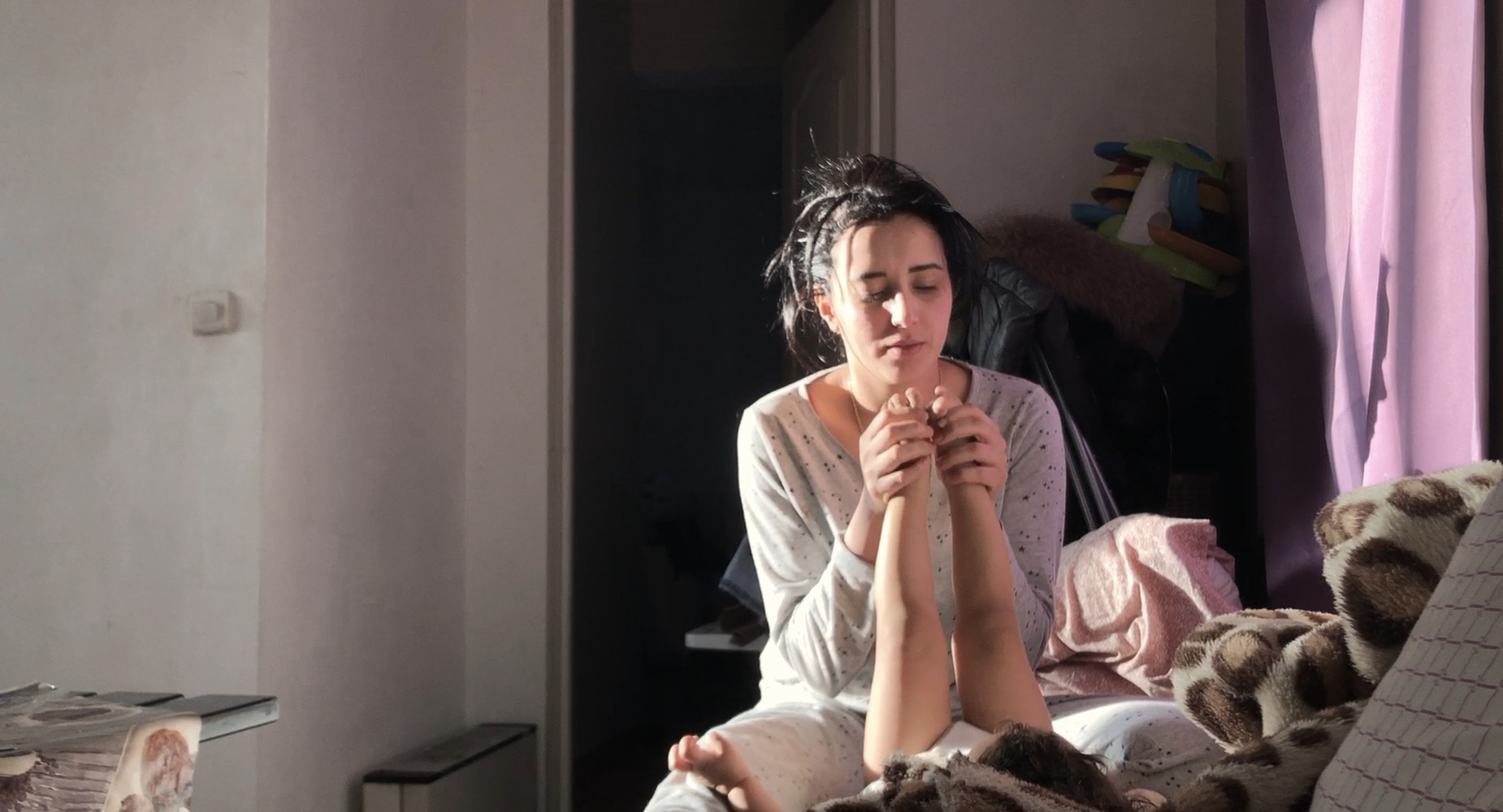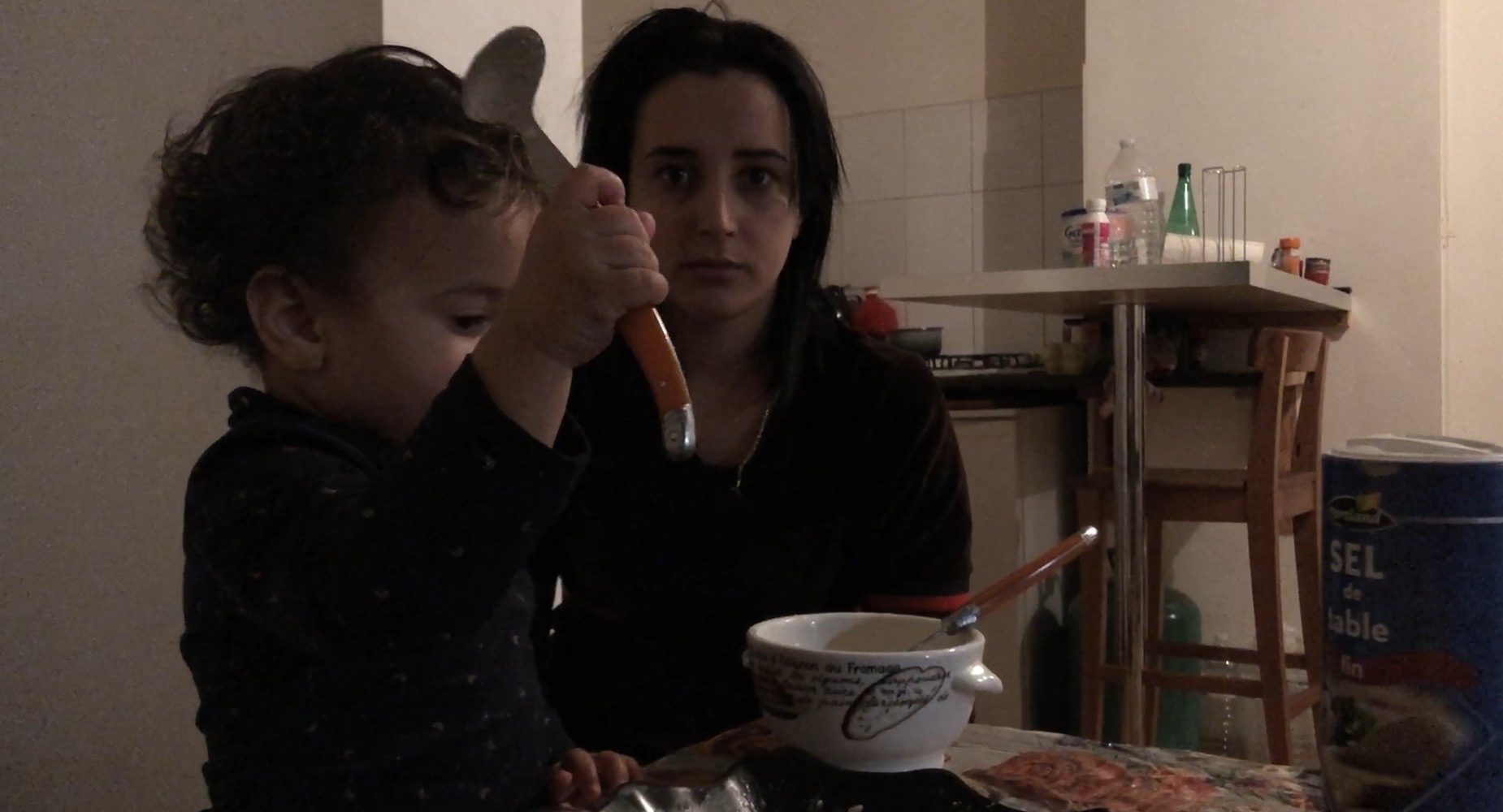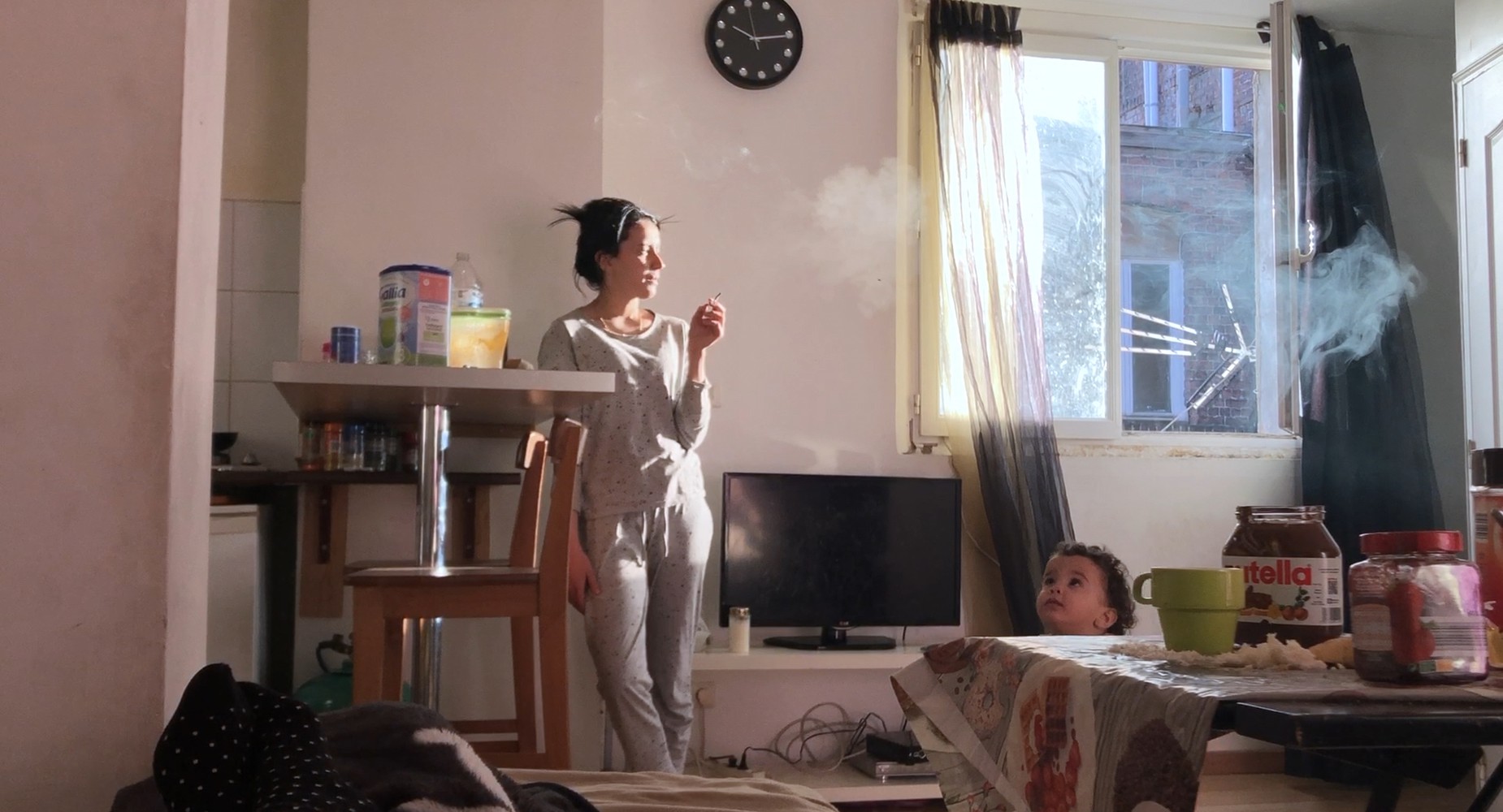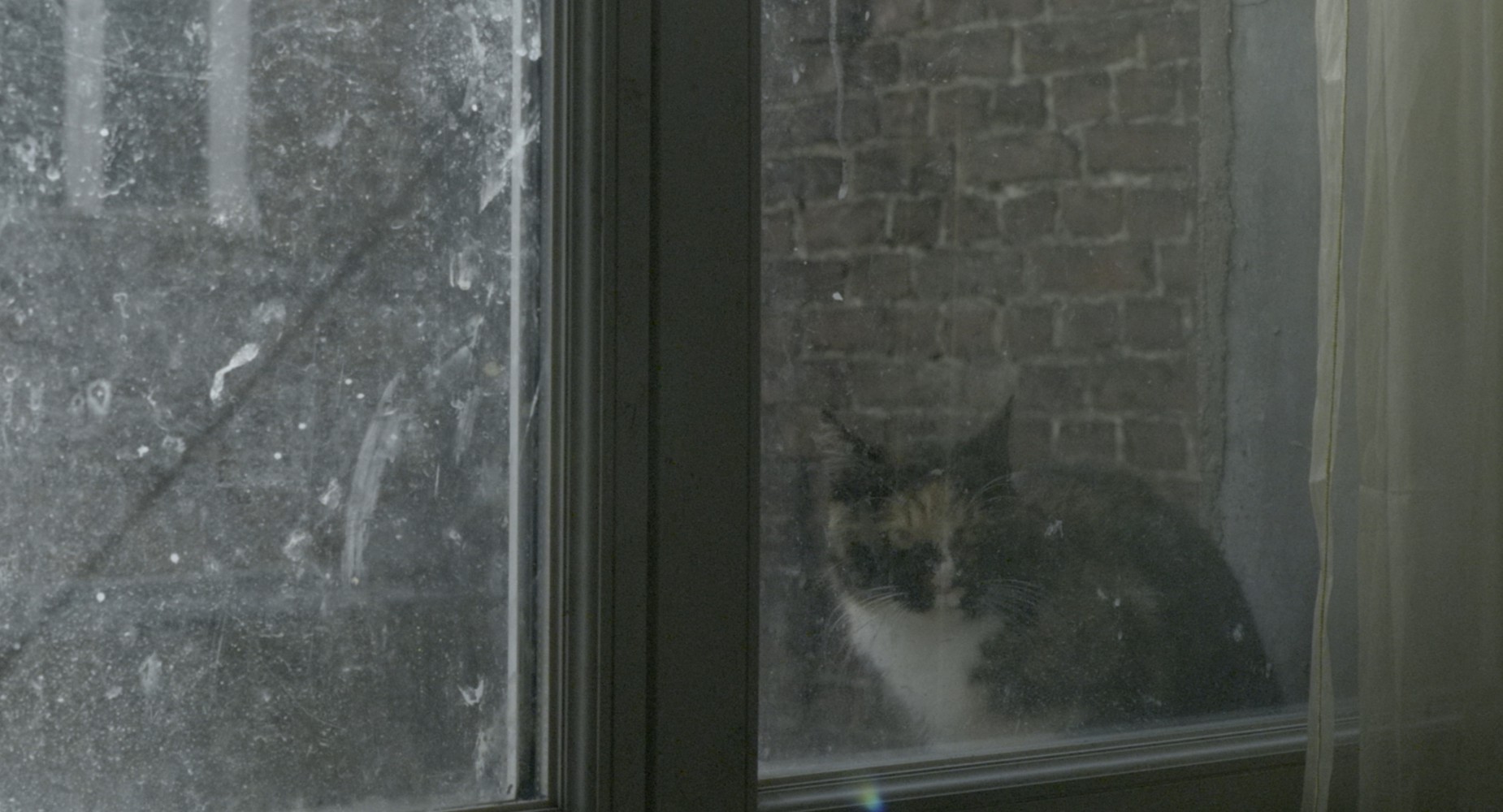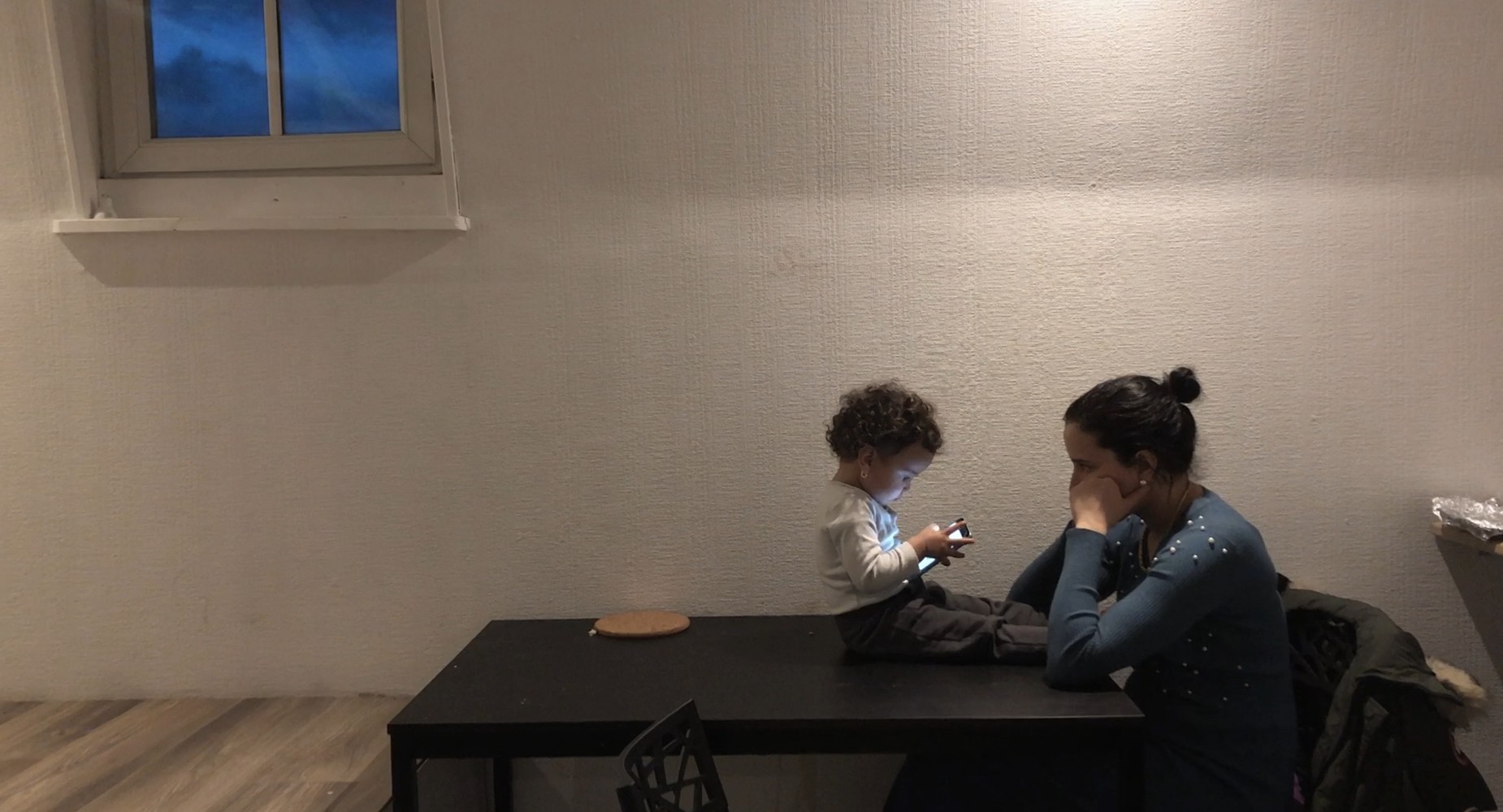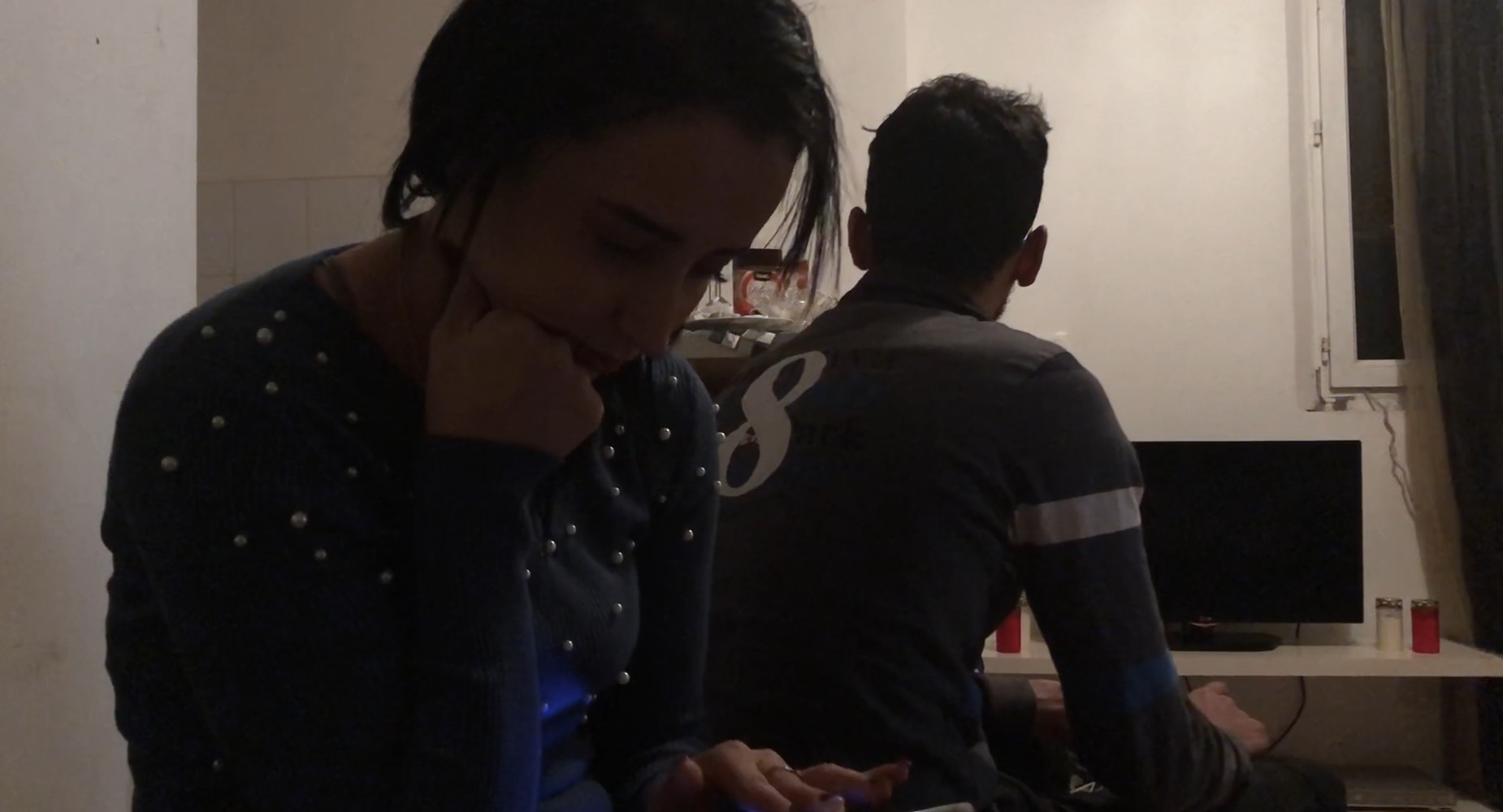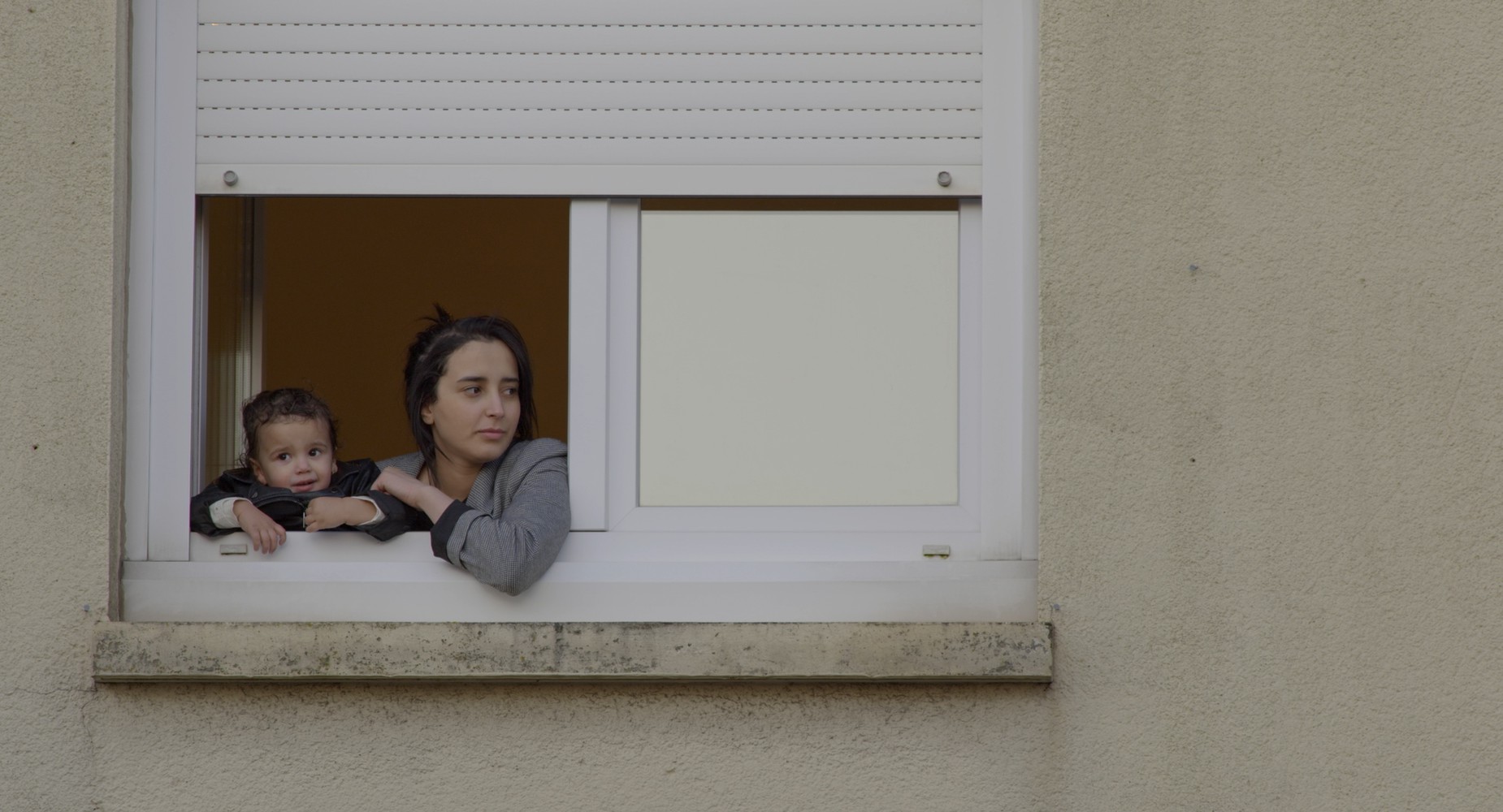Quatre mois en compagnie d’une mère au foyer de Roubaix. Le film montre comment la famille de Fatima se désagrège et comment celle-ci se retrouve seule, en Europe, avec un enfant.
Fatima a un peu plus de vingt ans. Chaque jour, elle cuisine, prend soin de son enfant et nettoie sa maison. Peu à peu, sa vie change : elle travaille comme femme de ménage, son mari la maltraite, elle demande de l’aide, parvient à s’échapper et trouve refuge dans un logement social. Elle qui s’est enfuie dans l’espoir de vivre une vie meilleure fait soudain face à un autre problème lié au statut de son enfant.
Dès leur rencontre, Anhar Salem a filmé Fatima avec un iPhone, afin de réaliser une œuvre en partie fictionnelle. Toutefois, au fil du temps, la cinéaste a préféré conserver ces séquences et filmer avec son propre téléphone pour décrire au plus près les changements dramatiques dans la vie de Fatima et garder la bonne distance dans leur relation.
Elle souligne également l’implication émotionnelle et occasionnelle de Fatima tout au long du film, en recourant à des images plus frappantes liées à sa situation mais aussi aux lieux et aux souvenirs qu’elle garde de sa carrière de danseuse en Algérie.
Remerciement spécial :
Théâtre du Nord
Saudi Art Council
Saudi Ministry of Culture
Acte Académie
Qalqalah
Béla Tarr - François Bonenfant - Laurent Delplanque - Cindy Coutant - Antoine Granier - Kendra McLaughlin - Ammar Berkani Sara Abuabdullah - Lawand Attar - Asaad Badawi - Ansam Salem - Hocine Mebarki - Hyder Helo - Jean Weustenraad - Kyoko Kasuya - Ugo Arsac - Vir Andres Hera - Sylvain Prandi - Imene Amara
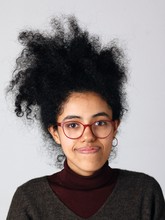
Née au début des années 1990 à Djeddah, en Arabie saoudite, dans un milieu multiethnique, elle a étudié l’informatique à l’Arab Open University. Graphiste et artiste vidéo autodidacte, elle explore et ouvre, dans son travail, des espaces publics et privés liés au quotidien, aux femmes et aux réseaux sociaux. Grâce à un équipement personnel réduit, elle est à même de fréquenter des espaces plus privés, de construire de nouvelles relations, de réduire les écarts et de remettre en cause les possibles représentations de soi dans des sociétés marginalisées.
Production : Le Fresnoy, Studio national des arts contemporains
